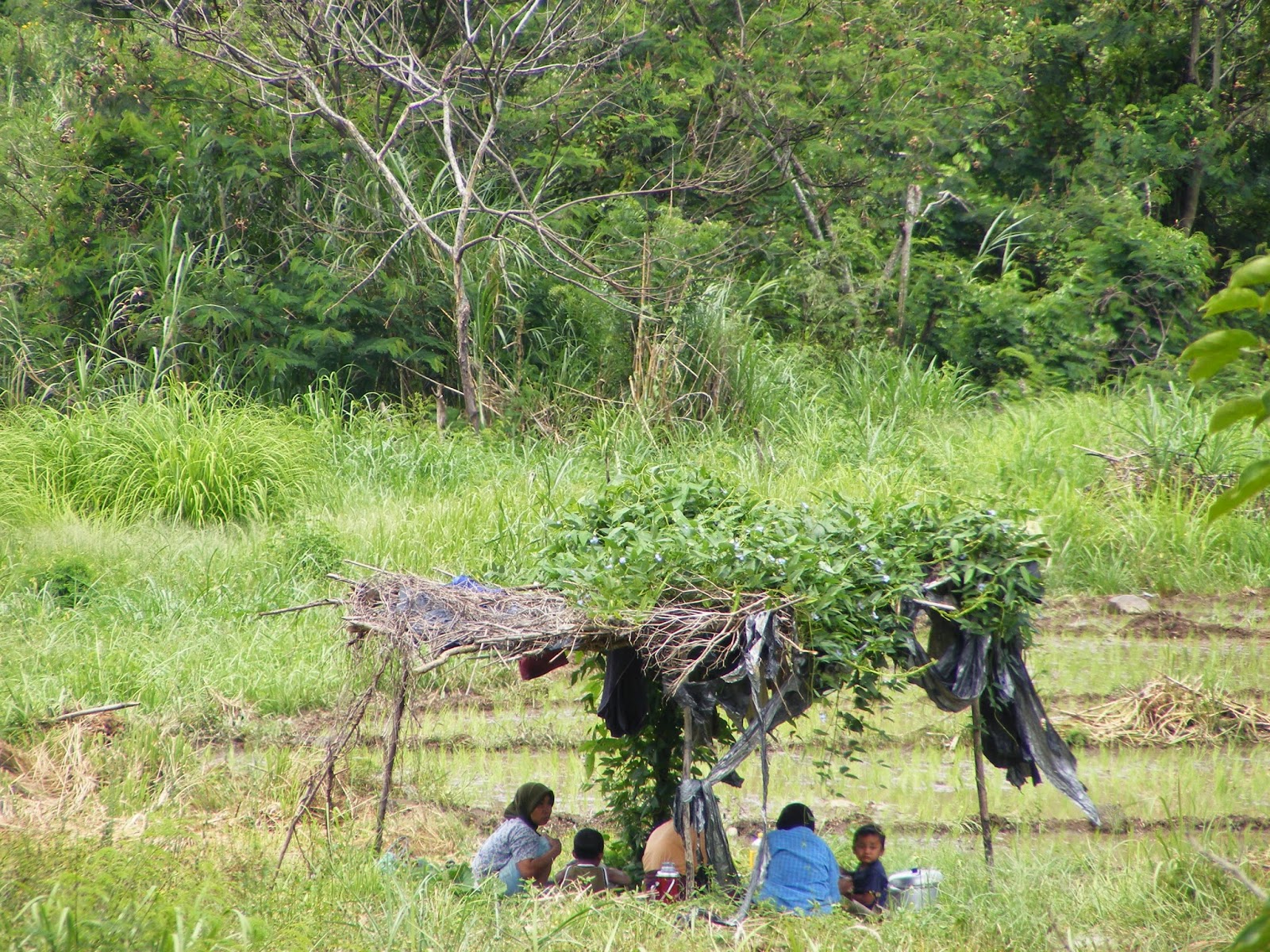That’s what
JMD did when it wanted to check in on its 1,000+ farmer coffee improvement
project in central Aceh, which finished in 2011.
This is Takengon--mountains and valleys . . . and lots of Arabica coffee
Since JMD is
local, it always keeps track of the projects that it’s initiated in Aceh. Many international NGOs don’t have that
opportunity; once a project is over, they leave the country, and over the past
10 years, the implementing partners they funded (but did not train to be
autonomous) could no longer stay open.
This was not the case with JMD’s Direct Support to Coffee Farmers (DSF)
project, which was a subcontract of IOM’s EDFF-funded coffee value chain
improvement project. However, as we’ve discovered, sustainability means
different things to different people, and neither EDFF nor World Bank required
any type of follow-up. JMD checked with IOM to make sure; former DSF
agriculture extensionists reported that IOM was doing a non-agriculture project
in a different district but had not returned to Takengon to see how farmers
were doing.
So, since
both JMD and I have been stressing the value of insuring that projects continue
long after the implementer and the donor have gone, JMD decided to conduct a
month-long M&E (monitoring and evaluation) visit in Takengon. JMD’s new Field Officer starts tomorrow
(November 1), and he’ll be interviewing local leaders, Co-op representatives,
peer farmer educators, and the coffee farmers themselves to collect sample data
on the effectiveness of the project, from actual harvest data to information on
the usefulness of the trainings and materials provided. I will keep
you posted.
The coffee farms in Takengon were more established and far greater in scope than the cocoa farms in Simpang Jernih.
Most of the nearly 1,200 farms were quite
profitable, and comprised the bulk of the respective farmers’ livelihoods.
And all benefited significantly from cultivation, harvest and post-harvest trainings,
and the “Pyramid scheme” model of JMD’s trainers training 50 farmers who in
turn were each in charge of 20 farmers made it possible to reach the great
majority of coffee farmers in that area.
Here, an AEW (Agriculture Extension Worker/Peer farmer educator) explains how to set seeds for a coffee nursery.
Of course,
we had$750 to run the project, and it employed 56 people, provided extensive equipment and materials, and lasted three years. So we'd really like to know if it is continuing to be helpful!
JMD's extension experts conducted weekly trainings throughout the district on topics ranging from proper harvest techniques to nursery maintenance to IPM (integrated pest management). On many farms, women and men shared equally in the responsibilities and decision making.
So
stay tuned for reports on the progress of our coffee project evaluation. I’m hoping for good things. And if there are issues, this gives JMD a
chance to help resolve them and keep Takengon producing some of the best coffee
in the country.










